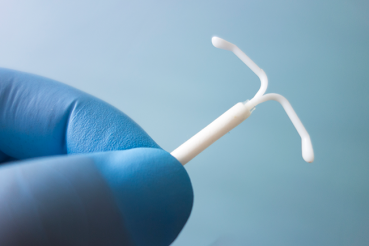It’s something nearly half the population will experience, yet you may never hear it discussed. It is not a medical condition or a disease, but its symptoms can be disruptive, disturbing or even debilitating.
“There are treatments to reduce and relieve menopause symptoms,” said menopause specialist Mary Farhi, MD. “But there are misconceptions about what is safe, what works and where to turn for information.”
Menopause is the point in time when a woman has been without a period for 12 consecutive months — without birth control that pauses menstruation. Menopause most often occurs between the ages of 45 and 55, after estrogen and progesterone levels have decreased as a natural part of aging.
Women can develop symptoms as their hormone levels change during a period called perimenopause, or they may develop them after reaching menopause. Symptoms differ greatly from person to person, and they can range from mild to severe and last from months to years. Some of the most common include:
- Hot flashes and night sweats
- Difficulty with concentration and memory
- Vaginal dryness and pain during intercourse
- Decreased sex drive
- Depression, anxiety and mood swings
- Disrupted sleep and fatigue
The hormonal changes also may contribute to hair loss and osteoporosis.
“Women need to know what to expect and what their best options are,” Farhi said. “What is best for each patient differs.”
The best source of information is a gynecologist who will provide an individualized, holistic approach to addressing symptoms that takes into account the patient’s health and lifestyle.
Research leads to better options
Menopause hormone therapy is the most effective treatment for hot flashes, night sweats and other vasomotor symptoms, as well as vaginal dryness, pain during intercourse and low libido, Farhi said. It can also help protect against osteoporosis. The therapy uses estrogen and progesterone delivered in a variety of ways, such as pills, patches and vaginal rings.
Hormone replacement therapy is not prescribed to women with certain health risks, such as those who have had or are at risk of having breast cancer, heart disease, blood clots or stroke. Though it is safe for most other menopausal women, and highly effective in treating vasomotor symptoms, hormone therapy isn’t being prescribed to many who may benefit from it, she said.
Patients and some physicians have shied away from hormone therapy since a 2002 National Institutes of Health study reported an increase in many types of health risks in women ages 50 to 79 who took estrogen and progesterone supplements. Prescriptions plummeted.
Further analysis clarified that the health risks were identified in women who hormone replacement therapy after age 60 or more than 10 years from the menopausal transition. Additional research supported the finding that short-term hormone therapy is safe for women who start hormone replacement therapy within 10 years of the onset of menopause.
“The risks were announced before researchers had developed a clear sense of how it affected women of different ages,” Farhi said. “Most menopause experts now agree that for healthy women under 60, or within 10 years of menopause, suffering from bothersome hot flashes and night sweats, the benefits of the therapy outweigh the risks.”
But hormone therapy’s reputation hasn’t fully recovered. Doctors are less familiar with how well it can relieve symptoms that are disrupting their patient’s life, and they still may be generalizing the risks, Farhi said.
Even as fewer women get hormone therapy for menopause from their gynecologist or primary care physician, a growing number are turning to unproven and risky treatments they see online or on social media, Farhi said.
“I have patients who will tell me they have a hormone pellet implant, but they don’t know what’s in it,” Farhi said. “They say they got them from a ‘hormone doctor’ to feel younger.”
The pellets, which are implanted just under the skin, usually on the hip, are a compound of synthetic “bioidentical” hormones. The pellet compounds are neither approved nor regulated by the FDA, but the ingredients are used to treat a variety of hormone-related conditions; the pellet compound can be made with a physician’s prescription.
“Some of these are being promoted as anti-aging therapy that will help them lose weight and have more energy and improved sex drive,” Farhi said. “Women are getting information that is not correct. It’s important to talk about menopause and keep it scientific.”
Beyond hormones and hot flashes
Menopause hormone treatment isn’t the only option. For women who are seeking a nonhormonal treatment because of their health conditions or concerns, there are other options. One medication approved to treat hot flashes is paroxetine, an antidepressant also known by its brand name, Paxil. A downside is that it may decrease libido, a side effect that Farhi said is an important consideration.
Meanwhile, a new nonhormonal drug is under review by the FDA, and a decision is expected this year. The drug, fezolinetant, has been tested to treat moderate to severe vasomotor symptoms associated with menopause. Farhi is among those who hope fezolinetant will be approved soon.
When approved, “it will be a very exciting option for women,” she said. “I think it will be a game changer for all women because it is nonhormonal."
In addition to medications, other ways to address specific symptoms include a vaginal laser treatment called MonaLisa Touch that helps reduce vaginal dryness and discomfort.
While menopause symptoms are physical and biologically triggered, they may be helped by some lifestyle changes, including reducing and managing stress. RUSH is one of seven sites that are part of the long-term Study of Women Across the Nation, which follows the physical, biological, psychological and social changes women experienced as they transitioned to menopause.
“We’ve learned a lot about menopause from the SWAN study,” Farhi said. “For example, we found that women with higher perceived stress in their mid-40s had more frequent and intense hot flashes.”
Lifestyle changes that reduce stress, such as yoga, meditation and even cognitive behavioral therapy may reduce hot flashes, and such mindfulness measures may help women experience better sex, she added.
“You have to look at the big picture and take a holistic approach to each patient’s menopause care,” Farhi said.




